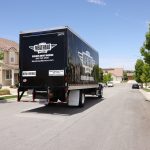It’s now easier for licensed professionals to get to work in North Carolina thanks to a new law signed by Governor Josh Stein, which requires state licensing boards to recognize certain out-of-state licenses from neighboring states. It’s an important step toward universal recognition of occupational licenses—a reform championed by the Goldwater Institute nationwide.
About one in four jobs in America requires an occupational license—a government permission slip to work. These licenses are expensive, demand time-consuming training, and are subject to requirements that vary from state to state. When a professional moves to a new state, they often have to go through that costly process all over again. But now, thanks to the Neighbor State License Recognition Act (HB 763), North Carolina residents who earned certain licenses in Georgia, South Carolina, Tennessee, Virginia, and West Virginia will have an easier pathway to practice their profession. The law passed the North Carolina Senate unanimously and handily passed the House with a vote of 112–2.
When a licensed professional moves from one state to another, they do not forget how to do their job. Their new location does not nullify years of experience, nor does it erase their education. This bill recognizes that very simple truth, as it does not ask newcomers to arbitrarily repeat burdensome exam processes or meet costly work experience benchmarks that they have already met in another state.
The law excludes certain “sensitive professions” from recognition—such as physicians, attorneys, and engineers—to give discretion to the boards over professions that might have differing technical standards across state lines. In addition, to qualify, applicants must have a clean criminal record, have held their license for at least a year without revocation or surrender, be in good standing with their current license, and have paid any relevant North Carolina licensing fees. Although the new law does not represent complete and universal recognition of professional licenses, it is a huge step toward economic liberty.
In the tragic aftermath of Hurricane Helene, many North Carolina cities are still recovering and are in desperate need of trades that would assist in their reconstruction. Fortunately, this law includes licensed professions like HVAC contractors, electricians, and locksmiths that will help expedite the overall recovery of the state. In a time of crisis, it serves the best interest of the state to draw in more practitioners of trades rather than fortify existing barriers to work. The law will now open the door for professionals to provide valuable skills to communities—from Asheville to Fayetteville.
In fact, Executive Vice President Donna King of the John Locke Foundation wrote, “House Bill 763 is a step toward modernizing our approach to occupational licensing. It encourages talent to flow across borders, honors professional experience, and affirms a fundamental principle: In North Carolina, we believe that the right to earn a living should be respected—not regulated into oblivion.”
Reducing barriers to work remains a crucial goal of the Goldwater Institute, as those barriers both restrict options for workers and restrain local economies. We applaud Representatives Zenger, Tyson, Moss, and Pless for their efforts to protect the right to earn a living by sponsoring this bill.
Taylor Walker is the State Affairs Associate at the Goldwater Institute.










